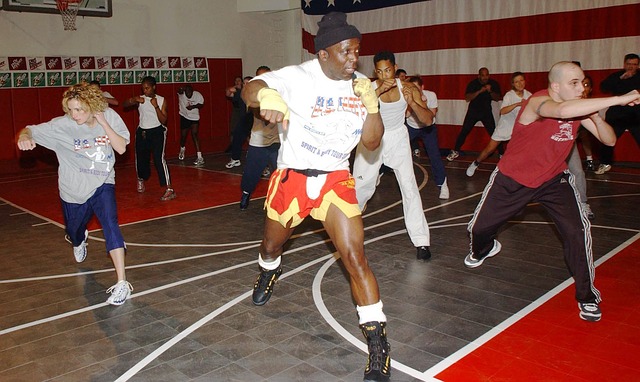Level 1 idioms – Unit 04

Conversation:
Morna: Hi, Peggy. Why do you have on gym clothes?
Peggy: I just came from my aerobics class at the Community Centre. Why don’t you come with me tomorrow morning and sign up?
Morna: I don’t know. I have to catch up on my reading for Art History.
Peggy: That sounds like an excuse to me. Come on. It’ll be fun. We can warm up by jogging there.
Morna: I’ll think it over tonight and call you in the morning. First, I need to talk it over with my husband since he’ll have to drop the kids off at school if I start doing this with you.
Peggy: Take it easy. I’m sure he’ll support you.
Morna: Also, I don’t want it to wear me out before I go to work.
Peggy: Don’t worry. I find it actually gives me more energy. Why don’t you just try it out once and see how you feel?
Pronunciation Exercise: Listen and repeat the vocabulary on the audio file below.
Vocabulary:
• aerobics: a type of exercising where you breathe hard
• excuse: a reason that’s not very good
• jogging: slow running
Pronunciation Exercise: Listen and repeat the idioms on the audio file below.
Idioms:
have on be wearing
sign up (for) register (for a course or activity)
catch up (on/with/to) go as fast as or do as much work as everyone else
warm up prepare for before doing / heat
think over consider
talk over discuss with someone
drop off drive (someone somewhere) / deliver (something)
take it easy don’t get upset, relax
wear out make (someone) very tired / make (something) old because of use
try out test (something) before buying
Notes:
Catch up is followed by on in front of a thing.
Example: I have to catch up on my reading.
It is followed by with or to in front of people.
Example: Let’s run faster and catch up to (or with) John.
If nothing follows, then don’t use a preposition.
Example: I missed a lot of work when I was absent, so now I have to catch up.
Warm up has 2 meanings. The other one is “heat.”
Example: For dinner, I think I’ll warm up yesterday’s pizza.
Drop off has 2 meanings. The other one is “deliver (something).”
Example: I need to drop off my drycleaning on the way to work.
Take it easy and calm down have the same meaning.
Wear out has 2 meanings. The other one is “make (something) old because of use.”
Example: She wore out her jeans by wearing them every day last year.
Your Score:
Your Ranking:
Your Score:
Your Ranking:
Your Score:
Your Ranking:
© 2004 Ambien Malecot


